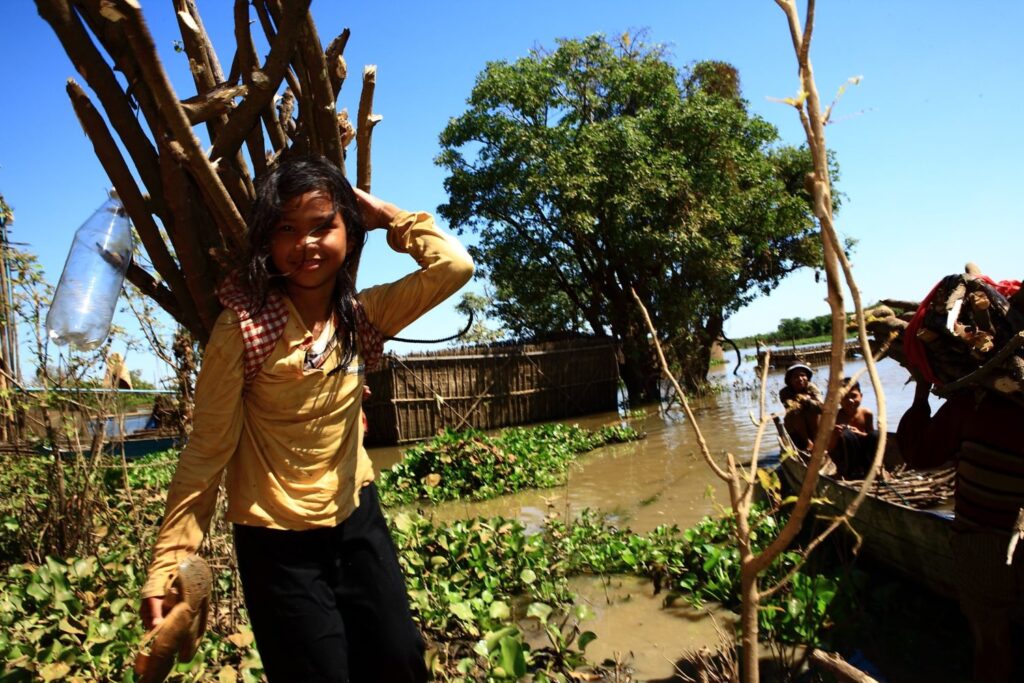Energy and food are basic human survival needs. Today three quarters of the people in Sub Saharan Africa (SSA) have no access to adequate, reliable and safe energy sources for cooking and heating, and rely on biomass traditional energy forms such as dung, agricultural residues, wood and charcoal. While environmental and health implications of the traditional energy forms are widely documented, and raised awareness about the importance of energy access in various policy and development arenas, the impact of energy access on food security at a household level has not been recognized. SIANI Expert Group on Food Security & Energy Access aims to address this gap and has recently completed an extensive literature review study exploring the links between energy access and food security in sub-Saharan Africa.
Generally speaking, the study indicates that research on the inter-linkages between energy access and food security is very limited. Only 22 from the 137 reviewed articles found to contain information about the linkages. Authors often alluded to the link but presented neither empirical data nor analyses. “The fact that we could not find detailed studies addressing this crucial link between energy and food security is in itself an important finding. It clearly demonstrates there is a major knowledge gap that needs to be filled. We urgently call for more studies to address this important research and policy question”, says Caroline Ochieng, one of the authors.
“What we can say is that the influence of fuelwood scarcity on nutrition has been alluded to for several decades. Paradoxically, there have been very few empirical studies to substantiate the arguments that support the link between the two aspects. We found only six articles that addressed this link in detail; of which two are original research articles by the same author (i.e. Brouwer 1994, Brouwer et al. 1997), two general reviews (Chikaire et al. 2011, FAO 2013) and areview by FAO (Fleuret, 1990) that directly tackled several hypotheses relating to energy and food security, including nutrition.
Impacts of inferior fuel (agriculture residues and dung) use on household nutrition and agricultural productivity:
1. Switch to inferior energy forms due to lack of access to energy sources
For the majority of households in Sub Saharan Africa, fuelwood is the major source of energy for food processing and cooking. Many researchers agree that the scarcity of fuelwood supply and availability in most rural areas in low-income countries is due to reduction in forest stock, deforestation and poverty.
2. Use of crop residues and manure as fuel
It is common practice that agricultural residues and dung are left on the field after harvest to nurture soil, but both are burnt for energy if there is no other fuel source. This reduces agriculture productivity resulting in lower yields. The low yields could in turn force farmers to cultivate more land, leading to loss of vegetation cover and deforestation. Increasing deforestation could result in even less fuelwood, increasing use of dung and crop residues, creating a continuous negative feedback loop.
The links between energy access and food security and nutrition are indirect and context-specific.
The research shows that the existing literature on food security has rarely tackled energy, even though the link between the two has been alluded to by many authors and fore many years. While some authors support the overall hypothesis of energy access impacting food security, an equal share discount this fact. It could be because the linkages between energy access and food security are not linear but more dynamic and complex as well as location and context-specific.
For instance, reduction in time spent on food-related activities impacts a number of activities from food production to food purchase to processing and cooking. Similarly, use of residues and twigs makes them less available for soil fertility and prevents women from doing multiple household activities because somebody has to sit by the fire continuously throwing the fuel in.
Faced with similar physical wood fuel shortage, poorer households and those with less family members who can work are more likely to reduce nutrient food intake and allocate their resources to fuel procurement or use inferior energy sources.
“Currently there is no consensus on whether, and how, energy access affects food security; as there is not enough sufficient evidence to support either side of the argument. Consequently, the efforts to align the policies of the two sectors are limited. Our review is among the few attempts in recent times to address this crucial gap”, points out Caroline Ochieng, – “ like previous reviews, our results are inconclusive due to lack of detailed studies that we can draw conclusions on. Clearly, there is a need for more research in this topic, as the existing knowledge gap has important implications.”
“Despite the FAO’s call for in-depth studies to test the hypotheses, in order to gain more profound and correct understanding of the dynamic linkages between energy access and food security and build strategic action on these issues there is a need for evidence”, she continues, “ very few if any comprehensive studies have been undertaken. In spite of the inconclusive findings of this review, we feel that it is time that more attention is paid to the interphase of energy access and food security/nutrition because addressing it can offer the means and opportunity for tackling these two global challenges.”
This article is based on the working paper: Links between energy access and food security in sub Saharan Africa: An exploratory review, Phosiso Sola (1), Caroline Ochieng (2), Jummai Yila (3) and Miyuki Iiyama (4),
1. Centre for International Forestry Research (CIFOR) 2. Stockholm Environment Institute (SEI) 3. Africa Forest Forum (AFF) 4. World Agroforestry Centre (ICRAF)
